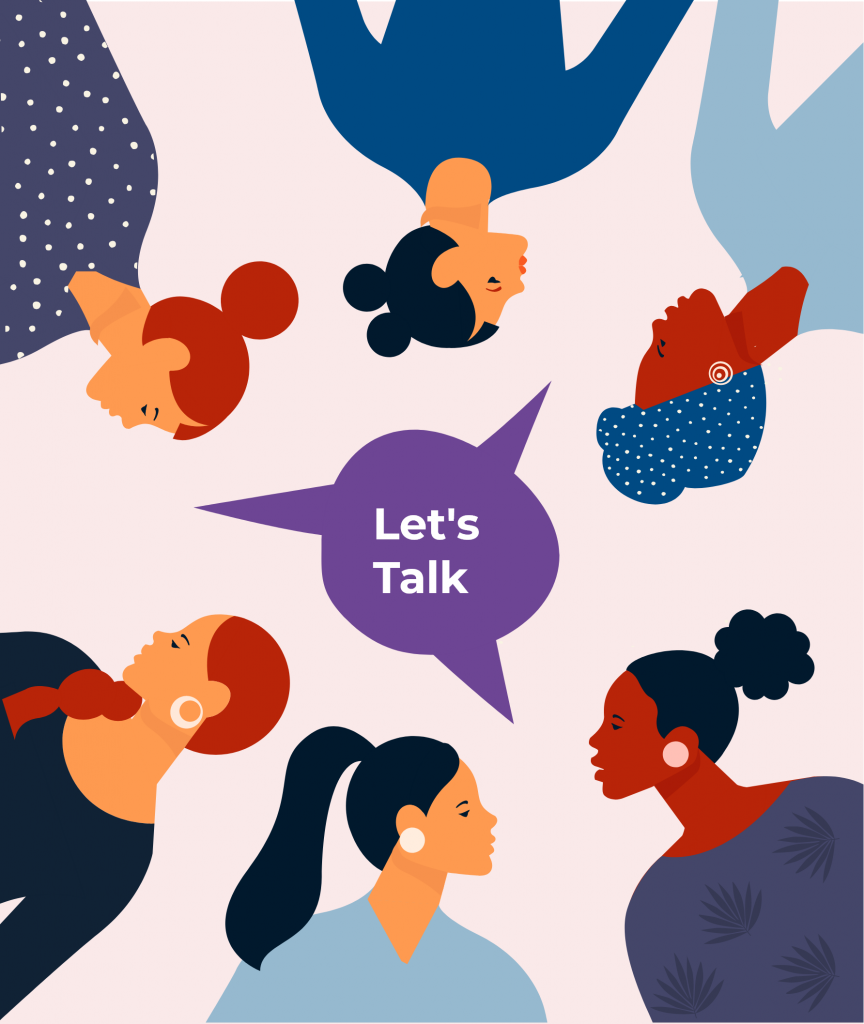Rape and sexual violence are topics many people find difficult to talk about. It’s a subject that can go under the radar because it’s not part of mainstream conversations. But this can result in assumptions being made and our knowledge gaps then filled by how the media report stories relating to sexual violence.
The frontline work PRCCG deliver means we can share our first-hand experiences. Work to counteract the myths that arise about sexual violence and talk about the realities.

If you need help or support. We're here to support you
How survivors feel makes it very difficult for them to talk to anyone about their experiences.
These facts alone start to build a picture of what it’s like for survivors and the barriers they face. It’s why we are committed to dispelling these myths by raising awareness and understanding of sexual violence. An important area to tackle if we want to continue to provide our vital services to survivors.
Accessing the support they need can be especially difficult. PRCCG focus on the needs and rights of female survivors but we do recognise the impacts of sexual violence on men and boys. The impact is no less devastating and we believe all survivors deserve specialist support.
The law states that consent to sex is when someone agrees by choice with the freedom and capacity to make that choice. If a person is unconscious or incapacitated by alcohol or drugs, they are unable to give consent to sex.
If you have sex with someone who is incapacitated through alcohol or drugs, this is rape. The reality is nobody asks for or deserves to be raped or sexually assaulted which means 100% of the responsibility lies with the perpetrator. It is everyone’s right to live their life free from the fear or experience of sexual violence.
Sex without consent is rape. If someone doesn’t have any visible injuries it doesn’t mean they weren’t raped. Not all survivors show signs of internal or external injuries and there are lots of circumstances where someone might not have the freedom or capacity to consent to sex.
Many people who are sexually attacked are unable to move or speak from the fear and shock they are experiencing.
The figures can quite easily dispel this myth – 90% of rapes are committed by men who know the survivor and they are often a person they have previously trusted or even loved. People are raped in their homes, workplaces or settings where they have previously felt safe.
Rapists can be friends, colleagues, clients, neighbours, family members, partners or exes. The risk of rape should not be used as an excuse to control a woman’s movements or restrict their rights and freedoms.

It’s true to say that most sexual assaults and rapes are committed by men against women and children. But it’s also true to say that women do perpetrate sexual violence.
For those who’ve been sexually assaulted or abused by women, it can be particularly difficult to report an incident. They are often fearful they won’t be believed or their experiences are not considered as ‘bad’ as being raped by a man.
Rape is an act of violence and control. The perceived ‘attractiveness’ of a survivor is an irrelevant factor. People of all ages, classes, cultures, abilities, genders, sexualities, races and religions are raped.
There is no excuse for someone who chooses to commit sexual violence and it is never the survivor’s fault. What someone was wearing or how they behaved when they were raped is irrelevant.

If you’ve experienced a sexual assault, share the burden and get in touch with us today. Everything you say to us is confidential. If you know someone who has been affected by sexual violence, you’ll want to help. Speak to us today, and let us support you to do this for your friends or family.

We use cookies on our site by continuing to browse our site, you agree to the use of these cookies. You can read our cookie policy and learn more here